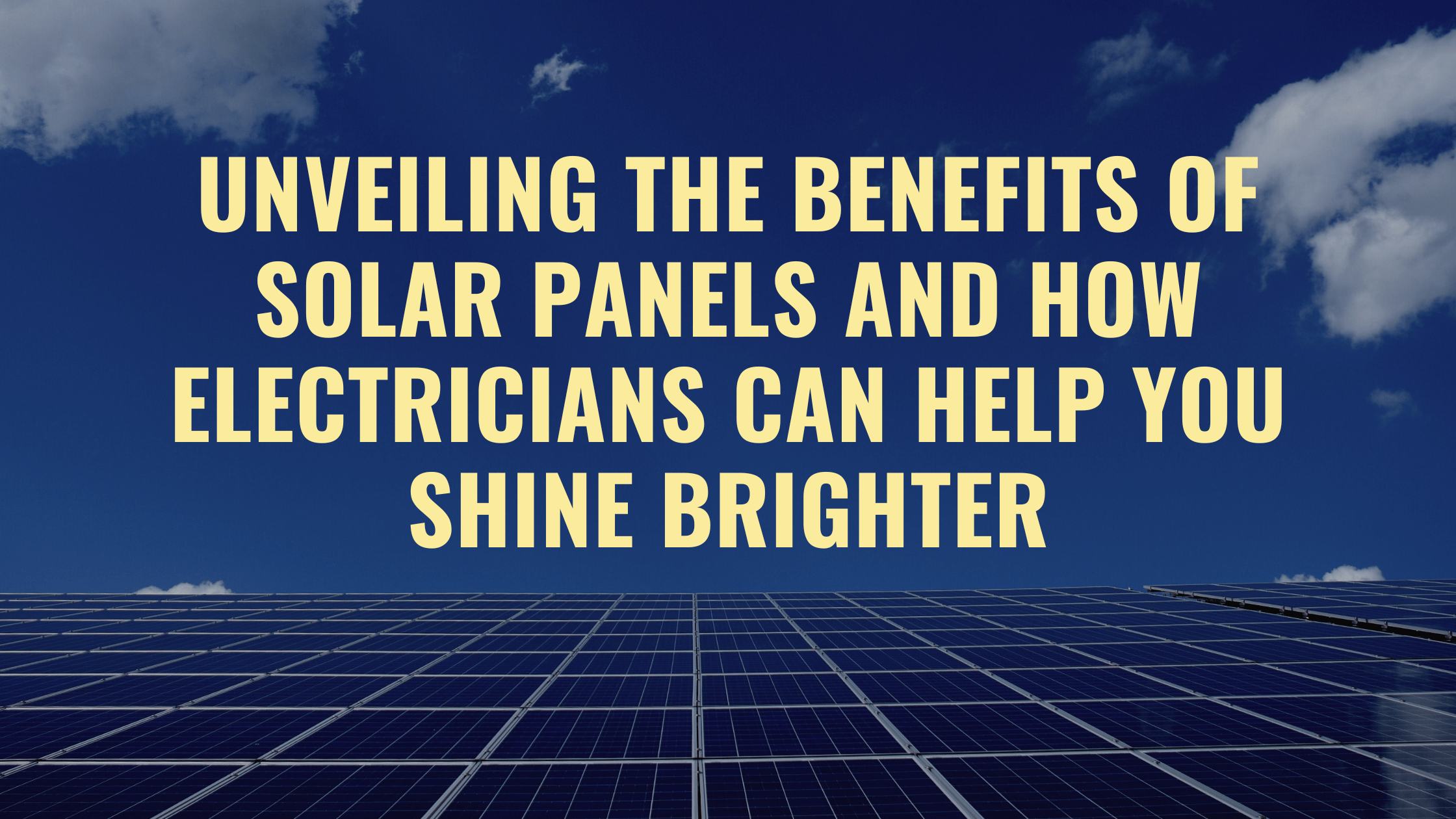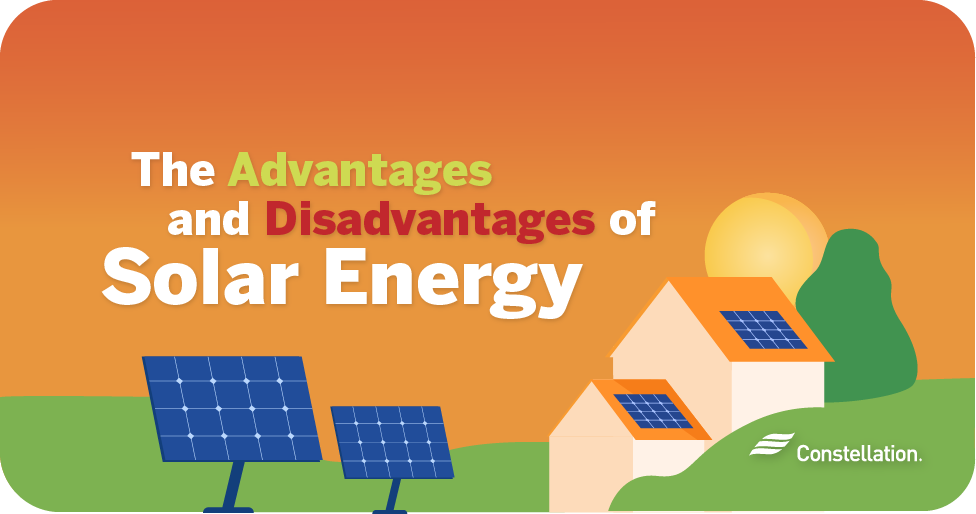Simply Solar Illinois: Top Solar Energy Solutions for Households and Businesses
Simply Solar Illinois: Top Solar Energy Solutions for Households and Businesses
Blog Article
Exactly How Solar Power Can Assist You Save Money and Decrease Your Carbon Footprint
The combination of solar power into your energy portfolio presents a compelling opportunity for both financial cost savings and ecological stewardship. By harnessing the sunlight's power, home owners can significantly reduce their month-to-month energy expenditures while likewise securing against the unpredictability of future energy prices. Moreover, the shift to solar contributes to a marked decline in carbon exhausts, lining up personal finance with broader eco-friendly goals. As different federal government rewards appear, the question emerges: exactly how can one efficiently browse the preliminary investments and recurring advantages of solar innovation to maximize both financial and environmental gains?
Understanding Solar Power Cost Savings
While the change to solar power often involves a preliminary investment, comprehending solar power cost savings is crucial for homeowners and services alike. Solar power systems can considerably decrease electrical power expenses by taking advantage of the sun's energy, equating into considerable long-lasting monetary benefits.
Furthermore, solar power systems might certify for numerous monetary rewards, including tax credit scores and refunds, further enhancing their cost-effectiveness. The schedule of internet metering permits individuals to offer excess energy back to the grid, developing an added profits stream. These elements add to the overall savings related to solar energy.

In enhancement to direct monetary cost savings, solar energy uses the included advantage of boosting residential or commercial property value. Homes geared up with solar panels are commonly a lot more eye-catching to customers, as they assure reduced power expenses - Simply Solar Illinois. Comprehending these aspects is necessary for any person taking into consideration solar power, as it highlights not simply the possible economic gains, yet additionally the more comprehensive ecological and financial benefits of taking on eco-friendly power options
Preliminary Expenses vs. Long-Term Advantages
When assessing solar power, it is necessary to weigh the first prices versus the long-lasting benefits. The upfront investment for photovoltaic panels, setup, and associated equipment can be substantial, typically ranging from $15,000 to $30,000, depending upon the system size and home power needs. This preliminary expenditure may deter some homeowners; nevertheless, it is important to consider the possible cost savings over time.
As soon as set up, solar energy systems can substantially decrease and even get rid of monthly power bills, bring about considerable long-term monetary benefits. Researches indicate that home owners can save anywhere from $10,000 to $30,000 over the life-span of their solar system, generally 25 years. In addition, several states use incentives, tax obligation debts, and discounts that can offset first expenses, making solar more accessible.

Minimizing Your Carbon Footprint
Lowering your carbon footprint is a critical factor to consider in today's environmentally conscious society, and adopting solar energy is among one of the most efficient techniques to attain this goal. Solar power is a tidy, renewable energy that considerably diminishes dependence on fossil fuels, which are major factors to greenhouse gas exhausts.

Additionally, the prevalent fostering of solar technology urges go to these guys the advancement of green work and sustains developments in energy storage space and performance. The more people and organizations buy solar power, the higher the collective decrease in carbon emissions, fostering a cleaner environment for future generations.
Federal Government Rewards and Discounts
Embracing solar energy not only profits the setting however can additionally lead to substantial financial cost savings, especially with the schedule of government rewards and discounts. Different government, state, and local programs are developed to urge home owners and organizations to buy solar power systems, making the shift more economical.
Among the most famous motivations is the Federal Investment Tax Obligation Credit Report (ITC), which allows solar system proprietors to deduct a considerable percent of the installation expenses from their government taxes. This motivation has been crucial in minimizing the upfront costs connected with solar energy systems. In addition, numerous states use their very own tax obligation credit ratings, gives, and rebates that can better enhance cost savings.
Moreover, some neighborhood federal governments offer real estate tax exceptions for solar installments, making certain that home owners do not encounter increased property tax obligations as an click for more info outcome of their renewable resource investments. Utility firms might likewise provide rewards, including net metering and feed-in tolls, which permit solar power individuals to sell excess power back to the grid.
Choosing the Right Solar System
Picking the ideal planetary system is crucial for taking full advantage of energy efficiency and economic advantages. The choice rests on a number of elements, consisting of power requirements, budget plan, and offered room. Property owners should begin by evaluating their electrical energy intake to determine the system size needed for optimum efficiency.
Next, consider the different kinds of solar modern technologies available. Simply Solar Illinois. Photovoltaic (PV) panels are one of the most common, transforming sunlight straight into power, while solar thermal systems concentrate on home heating water. Each type has distinctive advantages relying on individual demands
Budget factors to consider are additionally critical. First setup prices can differ substantially, so it is necessary to compare quotes from numerous companies and discover financing choices. Federal government incentives and refunds can better decrease the monetary burden, making solar systems extra available.
Verdict
The ecological benefits of solar power add to sustainable methods essential for combating climate change. Government motivations improve the usefulness of solar modern technology adoption, motivating a shift towards a cleaner, much more financially efficient energy source.
Report this page